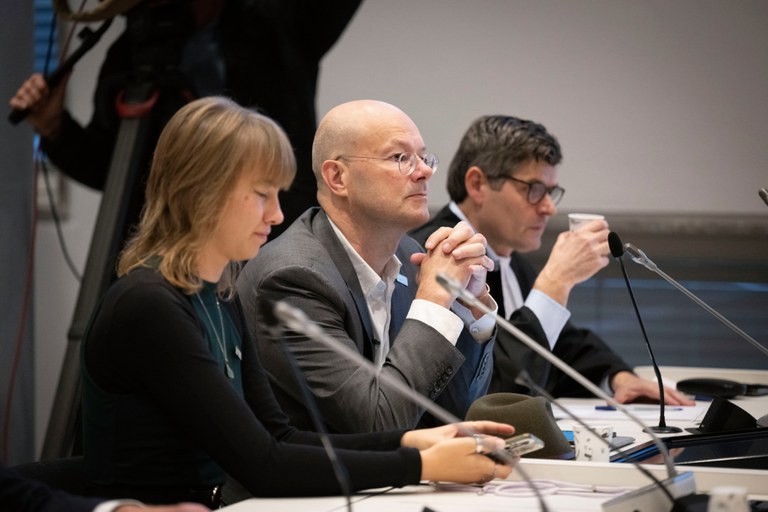The appeal court overturned multiple aspects of the 2021 judgment. But on closer examination, we've identified beacons of hope from this judgement, which we can use as stepping stones for our future work. These are 5 takeaways from the judgment that made us hopeful for what’s next.
After this week’s judgment, there can be no doubt about it: every person on the planet has the right to be protected from the dangerous consequences of climate change. This acknowledgement offers hope both for those who are already affected by climate breakdown, and our (future) children and grandchildren.
It’s not the first time a court recognized this right. In 2021, when we defeated Shell, the judge also emphasized this fundamental human right. Even the Dutch Supreme Court and the European Court of Human Rights agree. This makes legal steps against anyone (or any company) violating this right more likely to succeed.
On this point, the court was very clear. Not just nations, but large polluting corporations, such as Shell, too, have a responsibility to combat dangerous climate change. If they fail to do so, they will be in violation of a fundamental human right. Large polluters cannot ignore this. They need to take responsibility and cut back their CO2 emissions.

From left to right: head of youth department Friends of the Earth Netherlands Winnie Oussoren, director Donald Pols, and lawyer Roger Cox © Frank van Beek
In the Paris Climate Agreement, countries around the world agreed to work on limiting global warming to 1.5°C. But the Paris agreement was only signed by states. So what does it mean for polluting companies such as Shell? The court stated that Shell has a big part in causing dangerous climate change. This fact alone creates a ‘special responsibility’ for Shell to combat dangerous climate change.
Shell has about 800 new oil and gas projects in the pipeline to be developed in the next few years. This spells disaster for the planet. The court stated that these oil and gas projects are irreconcilable with the Paris Agreement. Take note of this point especially. It is one we might use to up the pressure on (other) large polluters like Shell.
The court recognized Shell as a powerful player. Dangerous climate change can only be prevented if not only the demand for oil and gas shrinks, but also its supply. This means Shell has to scale down its offer of oil and gas. Shell has been saying for years that they cannot drop their fossil fuel sales as long as there is a market for it. But now Shell can’t play this card anymore. The court confirmed Shell is to take responsibility for what they market.
The ruling from 12 November means that important parts of the judgment from 2021 have been overturned. But it does not mean we’re back to square one. We have already gained so much thanks to this lawsuit. This week’s judgment will change nothing about our drive to fight for climate justice. We’ll keep going until all polluters go green.
Banner photo: a group of people stand behind signs spelling out the phrase ‘stronger together’. © Edo Landwehr.
Our website uses cookies to ensure the use and functionality of this website. Read more about our cookie policy